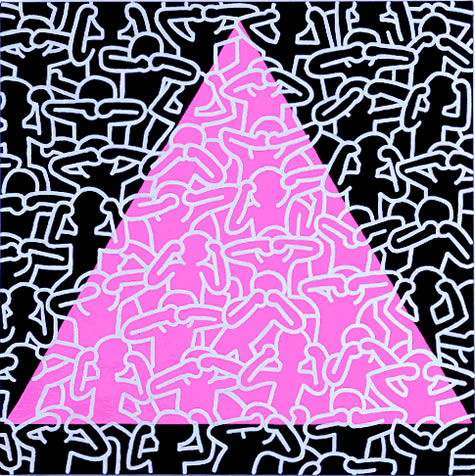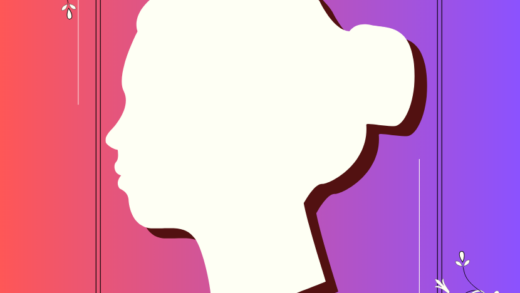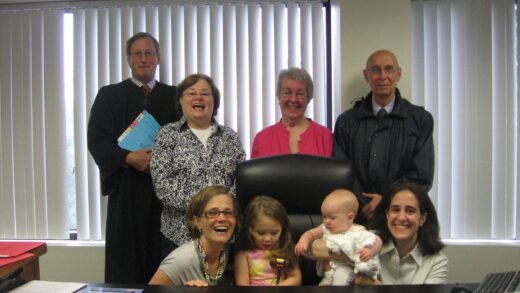by Keerthana Venkataraman

Reproductive choices can carry much emotionally weight, making it crucial for mental health services to be accessible to people of all identities, especially stigmatized ones. This podcast explores the connection between mental health and sexual & reproductive health, delving into why mental health services, such as counseling, can be useful in reproductive decision-making. How can these services be improved to be more useful and accessible to all? What other resources might be available to improve our mental well-being?
Transcript – Mental Health Services for Sexual and Reproductive Health
Opening music (upbeat, thoughtful) fades.
[Keerthana Venkataraman] Hello hello and welcome to “Mental Health Services for Sexual and Reproductive Health”! This is a podcast episode where we explore the connection between mental health and reproductive justice. I’m your host, Keerthana. I’m a psychology major who is oh-so-passionate about understanding why mental health services, such as counseling, can be useful in reproductive decision-making, and how these services can be improved, and made more accessible to people from all backgrounds, especially marginalized ones. Because we all deserve to be cared for and to get the help we need. We’ll dive into what’s working, what’s not, and the path forward to making these services more accessible. Buckle up, it’s about to be an emotional rollercoaster!
Dramatic, anticipatory music fades up, then fades out completely.
[KV] Let me start by defining “reproductive justice” and the range of topics that fall under this umbrella. According to Flourish Counseling & Wellness, the 4 main tenets of reproductive justice are: The right to not have children. The right to have children. The right to parent children in safe, healthy environments. And, the right to bodily autonomy. This includes topics like abortion, contraception, childcare, domestic violence, sexual abuse and other related issues1.
To address the first question of how reproductive justice is connected to mental health, it’s essential to understand that decisions around reproduction—whether it’s family planning, or deciding to have an abortion—can be very emotionally complex and conflicting. Let’s hear some real voices from people sharing their abortion experiences.
[KV] This is Marie Bertram from Youth Testify.
[Marie x Youth Testify] “I would like them to know, it is a hard decision. You just don’t wake up and say hey, I’m going to get an abortion today. No, it’s deep thought and emotional and rollercoaster. I mean it’s emotional rollercoaster wreck.”2
[KV] This is Anise from NCJW’s Abortion Stories.
[NCJW Repro Shabbat Abortion Stories: Anise] “Feeling like I have to deal with my state government trying to control my decision-making is, it just can make you really angry. For me in that situation having my abortion was a moment of reclaiming my agency.”3
[KV] From these archival audios, we understand that such decisions can bring excitement and empowerment for some, while others might feel anxiety, fear, isolation or pressure from societal expectations.
A Lady Science magazine article mentions a study by Louis-Victor Marcé showing that hormonal changes during pregnancy and childbirth can cause mood swings, increasing the risk of depression and anxiety. And for people with pre-existing mental health conditions? Whew! They would require some really good support, to say the least. People with bipolar disorder face a 50% increased risk of experiencing postpartum psychosis. Along with hormonal challenges, the lack of access to mental health services only adds to the burden, making an already difficult situation even harder4.
The Bei Bei Shuai case from 2012 is a clear example of how these inequalities hurt certain groups more than others. Bei Bei was convicted of attempted murder after a suicide attempt during pregnancy, which resulted in the death of her prematurely-born baby. People struggling with mental illness or substance use faced criminal charges for their pregnancies, showing how the law punished rather than supported those who most needed help5.
Disappointed cartoon music fades up.
[KV] Women of color, incarcerated individuals, and people with mental illnesses were hit hardest by these unjust laws. This disproportionate harm shows why it’s so important to think about reproductive justice through an intersectional lens. I’m sure you’re wondering: Keerthana, what ever is intersectionality? Well, Kimberlé Crenshaw, who’s like a total genius, explains it as understanding women’s oppression as the result of interconnected systems of power like gender, race, class, sexuality and other identities instead of as isolated categories. If we’re aiming for true reproductive freedom, we have to simultaneously address these overlapping forms of inequality6. For example, as I mentioned earlier, women with mental illness face legal challenges in ways that mentally healthy women don’t. It shows how privilege varies even within the same group, like women.
I examined a 2017 journal article by Grzanka & Frantell (I totally butchered that pronunciation). This provides us a view of counseling psychology through an intersectional lens. It showed how reproductive rights are unevenly distributed among people7.
Let’s look at Tennessee:
There was the Fetal Assault Law in 2013 which criminalized pregnant women for using narcotics. Instead of offering support and treatment, the system criminalized them, leaving them without informed consent or adequate care8. Here, we see how a lack of compassionate counseling can lead to devastating outcomes. Imagine how different things could be if these women were met with understanding, empathy, and access to mental health resources. Hmmm…I’ll give you a second to imagine that, it’s so important to stay hopeful.
Okay, moving on to another horrifying example. The article mentioned how low-income women were often pushed to use LARC (Long-Acting Reversible Contraception) without their fully informed consent. This pressure felt like coercion and connects to the really disturbing history of forced sterilization and eugenics9.
This is going to be our last example, I’m sorry. It just doesn’t stop. But that’s what we’re working towards so, let’s press on! There were TRAP laws which were regulations that restricted access to abortion, like the 48-hour waiting period. This increases stigma and reinforces the idea that abortion is immoral10. It’s like the government was saying “I’m going to give you 48 hours and I’m going to hope and pray that you change your mind.”
Okay, moving on to a more professional perspective on this topic. I had the privilege of accessing a conference report from Columbia University in 1973, which laid out an interdisciplinary model for counseling in abortion services. It was meant for physicians, nurses and social workers who specialized in abortion care. They identified the goal of counseling as one of mutual consultation, understanding the patient’s needs, helping them feel better prepared for their experience and guiding them to make the best use of available services11. Because, what’s the point of having resources if you don’t know how to use or access them? Make it make sense.
Providing support and building trust through emotional reassurance and providing accurate information is crucial. There are so many myths surrounding abortion which can contribute to fear and anxiety. And so, addressing these concerns with accurate, empathetic information can be incredibly calming.
According to this report, effective care in reproductive health requires a mix of skills. Physicians need strong medical knowledge. They should be able to clearly communicate with patients while explaining the procedure, and they must have an awareness of the patient’s readiness. Nurses should offer emotional support and encourage open expression of emotions. The role of social workers is to help patients manage times of crisis and to connect them to appropriate resources12.
Medical staff need to be aware of their own feelings about topics like abortion and sexuality. Emotions like discomfort or disapproval can easily come across in subtle ways, such as body language. Recognizing and managing these biases helps in creating a more supportive environment for patients. What’s particularly striking is that the report pointed out how even language matters. The staff were instructed to replace emotionally loaded terms like “labor pains” with “uterine contractions” so that they maintain a neutral tone and avoid stigma13. The goal was not to sway a patient emotionally or change their mind, but to validate and support their experience. The goal was to give patients the tools to make choices that aligned with their own values.
To improve counseling services, we need to focus on intersectionality, recognizing that people’s experiences with reproductive health vary based on their unique identities—not just gender, but race, class, and more. Counsellors should be able to effectively treat patients from different cultures and respect their diverse experiences.
Research shows that it’s the abortion stigma—not the procedure itself—that harms mental health14. And today? Well, not much has changed in terms of the stigma surrounding reproductive choices.
Apart from counseling services, there are also other avenues of care available as pointed out in the Lady Science article. Medical services can be very useful to some, don’t get me wrong, but others might prefer support in ways that are separate from this. There are community-based resources like doulas, nannies, mutual aid programs, and meal deliveries for new parents which can ease the mental burden of reproductive health decisions15. The ultimate goal is to provide inclusive support. Isn’t that so thoughtful? I love it. I’m so here for it!
So, what can you do to better deal with reproductive health issues in your daily life? According to Flourish Counseling & Wellness, self-care can be a powerful way to take control of your choices and reclaim a sense of agency during these challenging times. That could look different for everyone—it might mean taking time to reflect on your emotions and beliefs. It might mean leaning on community members, or trusting your body’s intuitions. Whatever it is, intentionality is key!16
Motivational, hopeful music fades up in the background until the end of the outro.
[KV] As we wrap up, it’s clear that mental health services play a crucial role in sexual and reproductive health. By centering care on empathy, intersectionality, and collaboration, we can help create a world where everyone, no matter their background, can make reproductive choices with confidence and dignity. Thank you for listening to this episode. Be kind to yourself, stay connected with your support systems, and remember—you’re never alone in your journey. Take care!
- Monisha Murjani, “Embodying Reproductive Justice: What Does it Mean and Why Does it Matter?,” Flourish Counseling & Wellness, n.d., https://womenscounselingchicago.com/embodying-reproductive-justice/ ↩︎
- Marie, “Marie X Youth Testify,” posted October 18, 2019 by Advocates for Youth, YouTube, 2:47, https://youtu.be/hfq7AnCF5bg. ↩︎
- Anise, “NCJW Repro Shabbat Abortion Stories: Anise,” posted December 22, 2021 by NCJW, YouTube, 4:46, https://youtu.be/hfq7AnCF5bg. ↩︎
- Lindsay Gray, “Reproductive Justice is a Mental Health Imperative,” Lady Science, March 11, 2021, https://www.ladyscience.com/features/reproductive-justice-is-a-mental-health-imperative-2021. ↩︎
- Lindsay Gray, “Reproductive Justice is a Mental Health Imperative,” Lady Science, March 11, 2021, https://www.ladyscience.com/features/reproductive-justice-is-a-mental-health-imperative-2021. ↩︎
- Kimberlé Crenshaw, “Mapping the Margins: Intersectionality, Identity Politics, and Violence Against Women of Color,” in The Public Nature of Private Violence: Women and the Discovery of Abuse, 1st ed., edited by Martha Albertson (New York, London: Routledge, 1994), 94-95. ↩︎
- Patrick R. Grzanka and Keri A. Frantell, “Counseling Psychology and Reproductive Justice: A Call to Action,” The Counseling Psychologist 45, no. 3 (2017): 331, DOI: 10.1177/0011000017699871.pg ↩︎
- Patrick R. Grzanka and Keri A. Frantell, “Counseling Psychology and Reproductive Justice: A Call to Action,” The Counseling Psychologist 45, no. 3 (2017): 331-332, DOI: 10.1177/0011000017699871.pg ↩︎
- Patrick R. Grzanka and Keri A. Frantell, “Counseling Psychology and Reproductive Justice: A Call to Action,” The Counseling Psychologist 45, no. 3 (2017): 335-336, DOI: 10.1177/0011000017699871.pg ↩︎
- Patrick R. Grzanka and Keri A. Frantell, “Counseling Psychology and Reproductive Justice: A Call to Action,” The Counseling Psychologist 45, no. 3 (2017): 333-334, DOI: 10.1177/0011000017699871.pg ↩︎
- Pregnancy and Abortion Research Materials, 1969 – 1979, Box 5, Leslie Tarr Laurie Papers, SSC-MS-00735, Sophia Smith Collection of Women’s History, Smith College Special Collections. https://findingaids.smith.edu/repositories/2/archival_objects/483953. ↩︎
- Pregnancy and Abortion Research Materials, 1969 – 1979, Box 5, Leslie Tarr Laurie Papers, SSC-MS-00735, Sophia Smith Collection of Women’s History, Smith College Special Collections. https://findingaids.smith.edu/repositories/2/archival_objects/483953. ↩︎
- Pregnancy and Abortion Research Materials, 1969 – 1979, Box 5, Leslie Tarr Laurie Papers, SSC-MS-00735, Sophia Smith Collection of Women’s History, Smith College Special Collections. https://findingaids.smith.edu/repositories/2/archival_objects/483953. ↩︎
- Patrick R. Grzanka and Keri A. Frantell, “Counseling Psychology and Reproductive Justice: A Call to Action,” The Counseling Psychologist 45, no. 3 (2017): 341, DOI: 10.1177/0011000017699871.pg ↩︎
- Lindsay Gray, “Reproductive Justice is a Mental Health Imperative,” Lady Science, March 11, 2021, https://www.ladyscience.com/features/reproductive-justice-is-a-mental-health-imperative-2021. ↩︎
- Monisha Murjani, “Embodying Reproductive Justice: What Does it Mean and Why Does it Matter?, Flourish Counseling & Wellness, n.d., https://womenscounselingchicago.com/embodying-reproductive-justice/ ↩︎




References
Anise. “NCJW Repro Shabbat Abortion Stories: Anise.” Posted December 22, 2021 by NCJW. YouTube, 4:46. https://youtu.be/hfq7AnCF5bg.
Crenshaw, Kimberlé. “Mapping the Margins: Intersectionality, Identity Politics, and Violence Against Women of Color.” In The Public Nature of Private Violence: Women and the Discovery of Abuse, 1st ed., edited by Martha Albertson, 93-118. New York, London: Routledge, 1994.
Gray, Lindsay. “Reproductive Justice is a Mental Health Imperative.” Lady Science, March 11, 2021. https://www.ladyscience.com/features/reproductive-justice-is-a-mental-health-imperative-2021.
Grzanka, Patrick R., and Keri A. Frantell. “Counseling Psychology and Reproductive Justice: A Call to Action.” The Counseling Psychologist 45, no. 3 (2017): 326-352, DOI: 10.1177/0011000017699871.
Marie. “Marie X Youth Testify.” Posted October 18, 2019 by Advocates for Youth. YouTube, 2:47. https://youtu.be/hfq7AnCF5bg.
Murjani, Monisha. “Embodying Reproductive Justice: What Does it Mean and Why Does it Matter?” Flourish Counseling & Wellness (blog), n.d. https://womenscounselingchicago.com/embodying-reproductive-justice/.
Pregnancy and Abortion Research Materials, 1969 – 1979, Box 5, Leslie Tarr Laurie Papers, SSC-MS-00735, Sophia Smith Collection of Women’s History, Smith College Special Collections. https://findingaids.smith.edu/repositories/2/archival_objects/483953 Accessed December 06, 2024.


